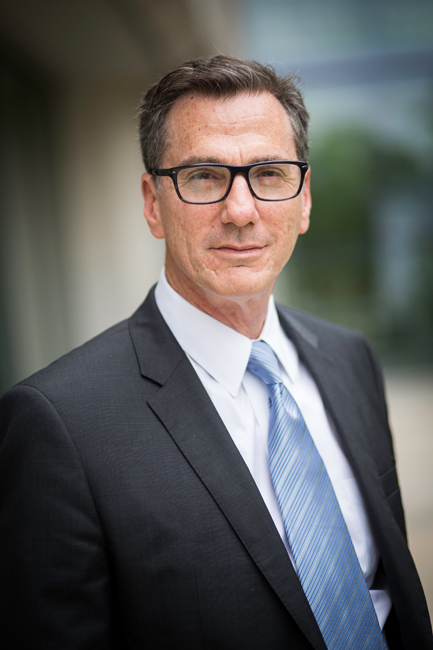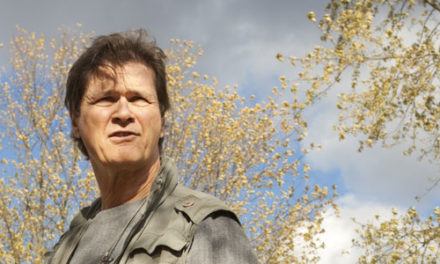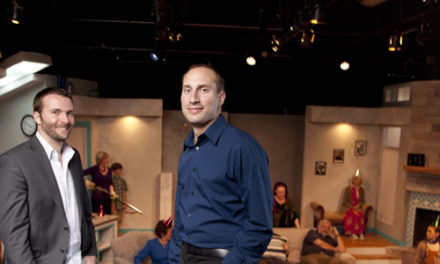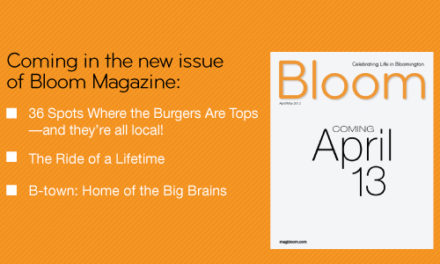
by LEE FEINSTEIN
A July article in SmartAsset reached the troubling conclusion that of all the nation’s college towns, Bloomington ranks as the most vulnerable to the spillover effects of COVID-19. From such indicators as the percentage of employment that is university-based and the percentage of local business that comes from undergraduate spending, the financial-advice publication claimed that the disruption to university life from COVID-19 would be worse for Bloomington than for anywhere else.
I don’t know where you get your financial advice, but if somebody told you they’d estimate your personal finances by adding up just your liabilities, without taking your assets into account, I’d say get another advisor.
One of Bloomington’s biggest assets is directly relevant to the question Bloom has asked me to address: America’s standing in the world and its relation to the upcoming election.
Bloomington is a global city. Indiana University–Bloomington is the place
of study for some 4,400 international students, of whom more than 2,000 are undergraduates. That’s about 10% of the student body here. The diversity IU brings to Bloomington is one of our greatest strengths. At the Hamilton Lugar School of Global and International Studies, we teach our students the importance of celebrating differences and seeking shared understanding. I see those same values on display in Bloomington.
In addition, IU is a premier destination for Hoosiers and other Americans who are keenly interested in other countries and want to understand them better. The school and university offer instruction in more than 80 languages, from Arabic to Uighur. Our students are determined to extend their global impact and to contribute to improved international understanding.
This has been true regardless of the ups and downs based on who’s in charge in Washington. In the depths of the Cold War, despite criticism from the state legislature, Indiana University established one of the leading centers of scholarship on Russia, in what is now the Robert F. Byrnes Russian and East European Institute.
Or consider the pioneering work of the Kinsey Institute in 1947 to “advance sexual health and knowledge worldwide.” By opening up a then-taboo subject, the Kinsey Institute paved the way for advances at home in recognition of LGBTQ+ rights and for the promotion of those rights as human rights abroad.
The guys whose names are on the sign outside the door of my office, Lee Hamilton and Dick Lugar, are the model. In their careers they showed that change is possible not by sowing divisions, but through unity, whether it was overriding President Reagan’s veto of legislation sanctioning apartheid South Africa, partnering with a former adversary to prevent the spread of nuclear weapons, or seeking to build national unity and a smarter approach to the Middle East and the challenge of extremism after 9/11.
A graph of America’s standing in the world reads like a cardiogram. The Pew Research Center Global Attitudes Survey traces a path that typically corresponds to who sits in the White House: generally low following the 2003 Iraq War, higher in the eight years that followed, and at historic lows, particularly in Western Europe, the last four years.
Even so, U.S. standing in Asia, including Japan, South Korea, and India, for example, is stable and remains generally favorable. My second home of Poland, where I served as U.S. ambassador from 2009–2012, tends to move in the opposite direction of Western Europe, as does, Hungary—a consequence of the global democratic recession and the global rise of right-wing nationalism.
But this is beside the point, because our standing in the world depends most of all on the example we set.
Our beautiful city is an island of globalism. We are both a beneficiary and a contributor to the global commons. The university that plants its flag here has a proud tradition of holding fast to principles, whatever the international and domestic mood. The next occupant of the Oval Office has a lot of work to do, but at the same time—a lot to work with.
Lee Feinstein is the founding dean of the Hamilton Lugar School of Global and International Studies at Indiana University. From 2009–2012, he served as U.S. ambassador to the Republic of Poland. He also served on the presidential transition team of President Barack Obama and as principal deputy director on the Policy Planning Staff at the Department of State from 1995–2001. In 2016, Feinstein was appointed to the board of the U.S. Holocaust Memorial Museum by President Obama.










